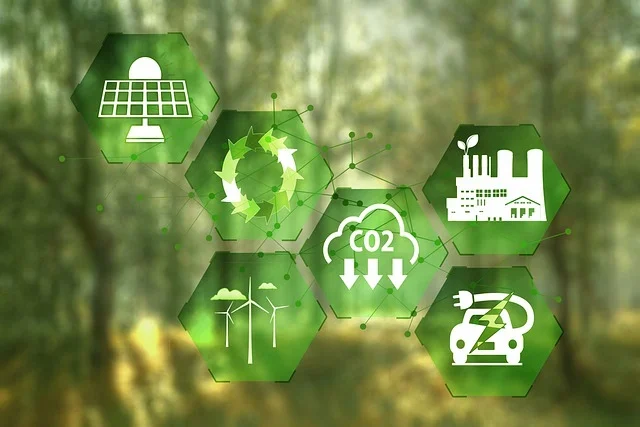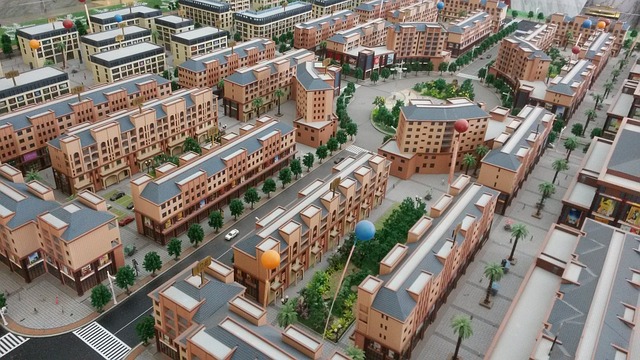Sustainable apartment management is increasingly vital in today's world, as communities seek to embrace environmentally conscious living while prioritizing resource conservation. By adopting green practices and promoting eco-friendly initiatives, property managers can cultivate a more sustainable living environment for residents. This introduction explores the importance of sustainable apartment management and its role in fostering a greener, more resilient future.
Sustainable Property Management
Sustainable construction is about building in a way that doesn’t harm the environment or deplete natural resources. It involves using recyclable and renewable materials, reducing energy consumption, and minimizing waste production. But it’s not just about the construction phase – sustainability extends to the entire lifespan of the building. This means incorporating features like energy-efficient roof hatches, solar panels, good insulation, and choosing long-lasting materials. The goal is to have a minimal environmental impact both during construction and throughout the building’s life.
Evolution of Sustainable Property Management
Sustainable property management is marked by several key trends:
- Adoption of Smart Building Technologies: Utilizing sensors, automation systems, and data analytics to optimize energy efficiency and overall building performance.
- Utilization of Green Building Materials: Prioritizing eco-friendly construction materials and energy-efficient designs to minimize environmental impact.
- Incorporation of Renewable Energy Sources: Installing solar panels and wind turbines to reduce reliance on fossil fuels and lower utility costs.
- Implementation of Water-saving and Waste Management Strategies: Introducing innovative technologies and practices to reduce water consumption and promote waste recycling.
- Embracing Community-Focused and Socially Responsible Practices: Engaging with the local community, promoting sustainable transportation options, and supporting local businesses to foster a more sustainable and inclusive environment.
These trends collectively contribute to a greener, more efficient, and socially responsible approach to property management .
Energy-Efficient Appliances and Systems
Buildings are major greenhouse gas emitters due to electricity usage and fossil fuel combustion. Energy-efficient envelopes and well-maintained equipment are crucial. Regular updates to building codes and appliance standards promote energy efficiency, reducing environmental impact. This includes proper waste management and minimizing refrigerant leaks. A building’s energy performance also depends on proper installation and maintenance of equipment. Regular replacements of appliances offer opportunities for efficiency improvements. Updated standards ensure incorporation of advanced technologies, fostering sustainability and reducing emissions.

Efficient Solutions: Boosting Real Estate Value Sustainably
In real estate, energy-efficient appliances and systems are crucial for constructing sustainable buildings. These technologies help minimize environmental impact and operational costs.
- Energy-efficient appliances, like refrigerators and air conditioners, consume less energy while maintaining performance. This not only enhances comfort but also attracts buyers or tenants by reducing utility bills.
- HVAC systems with features like programmable thermostats optimize energy usage while maintaining comfort levels. This reduces maintenance expenses for property owners.
- LED lighting fixtures are preferred for their longevity and reduced energy consumption, lowering electricity bills and carbon emissions.
- Proper insulation and sealing minimize heat transfer and air leakage, reducing the need for heating and cooling.
- Integrating renewable energy systems, like solar panels, reduces reliance on grid power and fossil fuels.
Overall, prioritizing energy-efficient appliances and systems enhances property value, attractiveness, and long-term sustainability.
Interested in renting a sustainable apartment and joining our environmentally conscious community? Reach out to us now for more information and booking!
The Role of Eco-Friendly Building Materials in Sustainable Construction

Environmentally friendly building materials are essential for sustainable construction, reducing environmental impact throughout their lifecycle. Renewable resources like bamboo and responsibly sourced wood offer sustainable alternatives, while recycled materials minimize waste and support circular economies. Low-energy production options, such as clay bricks and rammed earth, decrease greenhouse gas emissions. Locally sourced materials reduce carbon emissions from transportation. Low-toxicity materials ensure healthier indoor environments, while durable options like concrete and metal roofing prolong building lifespans. Insulation materials optimize energy efficiency, and water-efficient options conserve water resources. By integrating these materials, sustainable buildings can minimize their environmental footprint and promote healthier living spaces.
Future Outlook and Challenges for Sustainable Apartment Management.
In the foreseeable future, sustainable property management will see significant advancements. Smart building technologies will become even more sophisticated, optimizing energy usage and enhancing occupant comfort. Expect stricter green building standards and increased integration of renewable energy sources like solar and wind. Circular economy principles will gain prominence, emphasizing waste reduction and reuse. Resilience and climate adaptation will be key focuses, with measures to withstand extreme weather events. Enhanced data transparency will drive better reporting of sustainability metrics. Community engagement and social impact initiatives will also grow, ensuring sustainable properties benefit local communities. Overall, the future of sustainable property management is one of innovation, regulation, and a heightened commitment to environmental and social responsibility.


